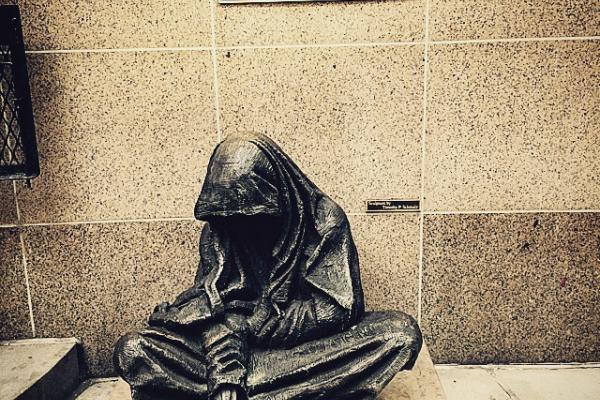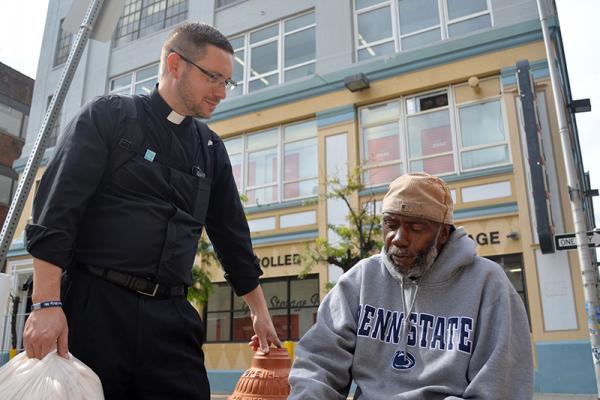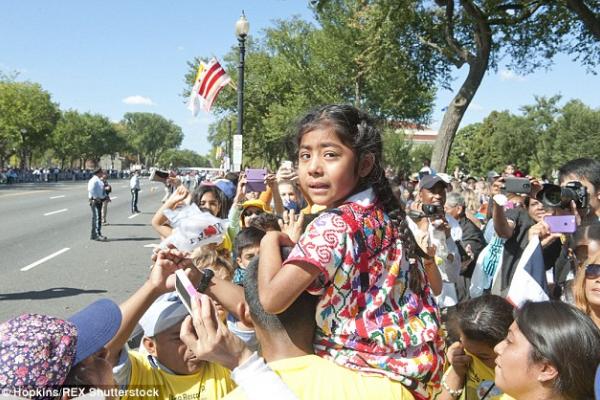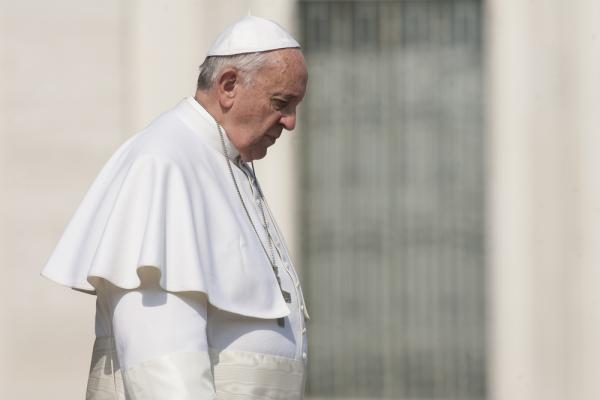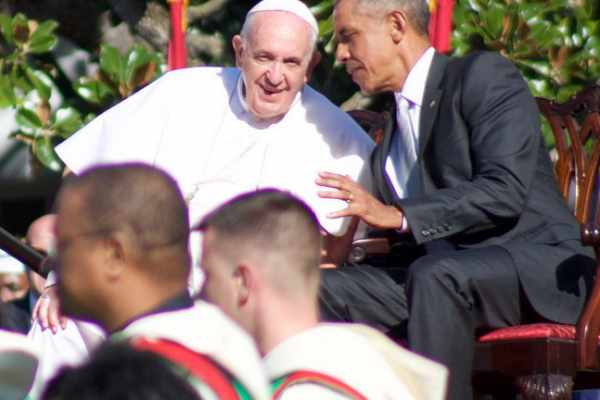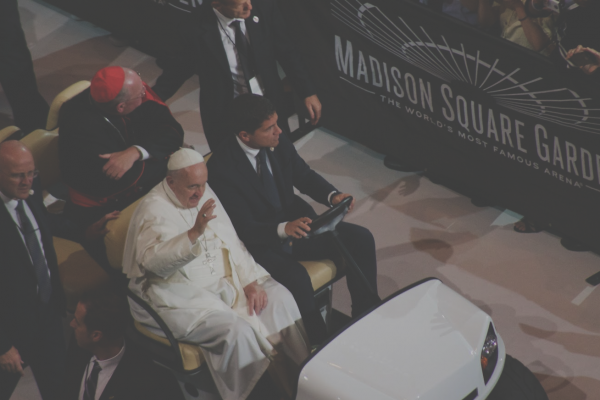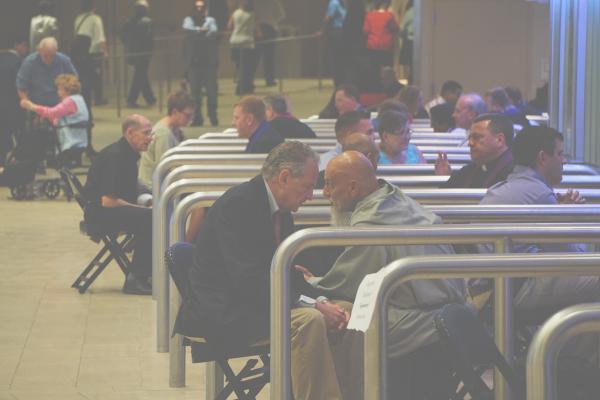On May 31, 1973, a group of inmates at Philadelphia’s Holmesburg Prison walked into the deputy warden’s office to ask for the establishment of a special prayer room for Muslim prisoners. When Deputy Warden Robert F. Fromhold denied their request, inmates turned on him and Warden Patrick N. Curran, stabbing both men dead with shivs.
On the morning of Sept. 27, the last day of his first trip to the United States, Pope Francis visited a Philadelphia prison named for Curran and Fromhold, where he expressed solidarity with the female and male prisoners.
“I am here as a pastor, but above all as a brother, to share your situation and to make it my own,” he said, and bestowed one-on-one blessings upon a number of inmates — including several who appeared to be Muslim.
President Obama on Sept. 24 announced the names of 18 people who will serve on his third advisory council on faith-based issues.
They include leaders of religious groups and nonprofits — from a former president of a historic black denomination to the head of an anti-hunger group to an executive of a Sikh organization.
Most people here came to see Pope Francis. Patty Disney came to see George Spellman.
Spellman, who said he is in his sixties, is not a world leader or a celebrity. He is a homeless man, living on the streets and battling colon cancer and a broken heart. His 10-year-old daughter was killed, hit by a car, and his life unraveled from there.
But as Francis delighted hundreds of thousands with his appearances at Independence Hall and on Benjamin Franklin Parkway Sept. 27, Disney and a band of 360 volunteers bypassed the crowds and went in search of people like Spellman — down and out and living on the streets.
“We didn’t want to just be present with the Holy Father,” Disney said, preferring a “true spirit of service and a missionary heart.”
And Pope Francis has shaken up Washington politics.
While done in a subtle manner, the pope’s speech to Congress was forthright and unyielding in reminding each lawmaker of the responsibility they have to “defend and preserve the dignity of your fellow citizens in the tireless and demanding pursuit of the common good…”
His bottom line message for the multiple issues he raised and one Congress seems to have strayed away from in recent years was, “Let us remember the Golden Rule: ‘Do unto others as you would have them do unto you’” (Matthew 7:12). Simple, right? Yet Congress seems to be out of touch with the needs of the American people.
People who cover up clerical sexual abuse should be considered guilty, and God will judge priests who are unrepentant about committing such crimes, Pope Francis told journalists at the end of his U.S. tour.
Speaking aboard the papal plane from Philadelphia to Rome, where the pontiff arrived on the morning of Sept. 28, Francis said clerical abuse is “nearly a sacrilege” and the Catholic Church must take a tough line.
“For this reason the Church is strong on this and one must not cover these things up. Those who covered this up are guilty. Even some bishops who covered this up, it is a terrible thing,” the pope said, quoted by Vatican Radio.
What a week it has been! We're compiling our favorite behind-the-scenes snapshots of Pope Francis' visit, from the cameras and phones of our Sojourners representatives on the ground. Here's how the pope's visit has looked to us:
The story of Malala Yousafzai is well beloved by Western media, with news outlets having followed her life closely for the past three years. And rightly so. The Pakistani teen is an activist for girls’ education and a well-respected world leader in promoting the voices of women and girls around the globe.
It was her belief that all girls have a right to an education that made her a target of the Taliban, resulting in Malala losing hearing in her left ear and being forced out of her beloved home in the Swat Valley, Pakistan. Malala celebrated her sixteenth birthday by addressing the United Nations in 2013, the same year she released her memoir, I Am Malala. And most recently, she was named the Nobel Peace Prize recipient of 2014. Her non-profit, The Malala Fund, invests and advocates for girls’ secondary education, in order to amplify the voices of girls around the world who have been ignored.
It would be hard to create a stronger superhero for girls and boys in anyone’s imagination.
Pope Francis began the final day of his U.S. visit by meeting privately with five adults abused as children by clergy, teachers, or family members, telling them they should expect the church to look after them and vowing “the zealous vigilance of the church to protect children and the promise of accountability for all,” including bishops.
“For those who were abused by a member of the clergy, I am deeply sorry for the times when you or your family spoke out, to report the abuse, but you were not heard or believed. Please know that the Holy Father hears and believes you,” he told the three women and two men — who he called “survivors” — at the private meeting at a seminary here on Sept. 27.
A leading victims’ advocacy group in the U.S. quickly dismissed the meeting as another “feel good, do nothing” papal meeting with survivors. This is the second time Francis has met with victims; the first was in the Vatican in July last year.
According to the Vatican’s account of the meeting, Francis expressed “deep regret” that some bishops shielded abusive priests, and added: “I pledge to you that we will follow the path of truth wherever it may lead. Clergy and bishops will be held accountable when they abuse or fail to protect children.”
The pope praised the witness of the victims, who were not identified, and said their presence was “so generously given despite the anger and pain you have experienced.”
“Brace yourself, Father,” I said, taking a seat in a plastic chair facing my would-be confessor in Madison Square Garden’s dimly lit Madison Bar on Friday, a few hours before the start of the papal mass.
The bearded Franciscan priest in his dove gray vestments laughed and said, “No way. It’s all fine. Think of it as a big embrace of forgiveness from your heavenly father.”
OK. I tried to warn you.
“Let me see if I remember how this goes,” I began. “Bless me father for I have sinned; it’s been 35 years since my last confession.”
He tried not to look startled and almost pulled it off.
“Well, I’m glad you’re here,” he said, smiling kindly as he reached beneath his cassock to pull out a small paperback tract that, he explained, contained a list of questions that he could ask me that might make recounting all of my trespasses since the third grade a little less daunting.
1. WATCH: Pope Francis Stops His Motorcade for 5-Year-Old Sophie Cruz
Our favorite moment so far of Francis' time in the U.S. Grab the tissues — this one'll tug your heartstrings. ¡Si se puede!
2. Pope Francis Is Not ‘Progressive’ — He’s a Priest
“Living the Christian faith always has profound political consequences, but it can’t be reduced to a political stand.”
3. WATCH: What Song Does Pope Francis Dance To?
What happens when you wait seven hours to see the pope? A dance party, obviously.
A Cuban-American reflects on the pope’s journey to ‘nuestra America.’
